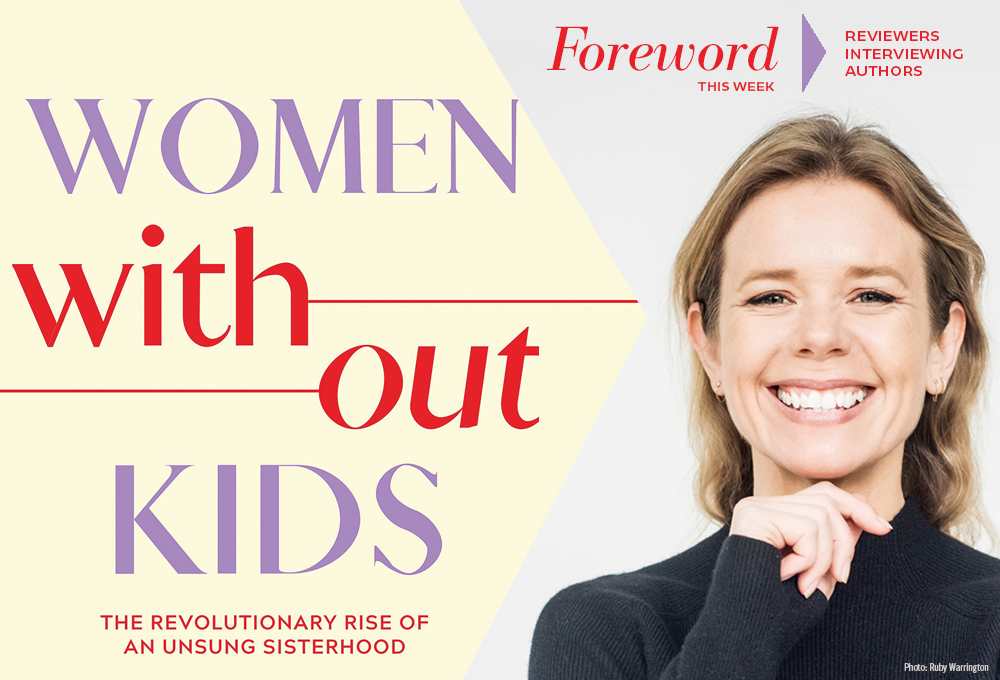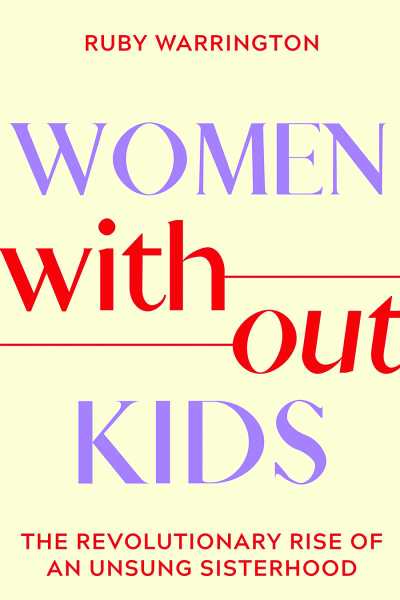Reviewer Ashley Holstrom Interviews Ruby Warrington, Author of Women Without Kids

Rather than shame and pity, what if women were universally celebrated for choosing not to have kids? With overpopulation and climate change such a threat, shouldn’t the decision be viewed as a selfless act for the good of the planet?

Sadly, the kid decision is gut-wrenching for many women, but not all. Today, we’re going to hear from one who said no to motherhood and then decided to do a deep dive into the conflictions she felt.
Women Without Kids is Ruby Warrington’s to-bear-or-not-to-bear manifesto—described by reviewer Ashley Holstrom as a “feminist exploration of being child-free, treating that decision as one of empowerment,” in Foreword’s March/April issue.
Make way for another stimulating reviewer-author conversation.
What drove you to write this book, blending your personal story with academic works?
On the personal side, I found myself looking ahead to menopause at age forty three with zero regrets about not having had kids, and not a hint of panic that it was “now or never.” This went against everything I’d ever been told about how I would feel about my decision—and it made me realize that the intense self-doubt I’d experienced in my twenties and thirties was the result of other people’s projections about my “childfree” status.
I was also at a stage in my personal development where I felt ready to unpack my deeper “whys” for not having children—the better to understand myself and my path. Zooming out, I realized that these “whys” were inextricably bound to the society, culture, economy, and environment that had been the backdrop to my becoming a woman, and that these same factors had influenced all of our decisions about our procreative potential, leading to the drop off in the birth rate globally. As such, the project took a more anthropological turn, the question I seek to answer with the book going from: “why did I not want kids?” to “why have WE stopped having kids?”
How did you land on the idea of the Motherhood Spectrum? What would you say to someone who lands somewhere in the middle?
This idea spun out of my previous book, Sober Curious, which seeks to do away with binary attitudes toward alcohol use disorders. Instead of there being “normal” drinkers and “problem” drinkers, I posit that, to a degree, all drinking exists on a spectrum. It seemed to me that this same thinking could be applied to motherhood. We are told that becoming a mother is all women’s “biological imperative,” but any one person’s desire and aptitude for parenthood will be influenced by a unique confluence of factors (everything from personality, to the family and culture they were raised in, to finances, relationship status, career aspirations, sexuality and gender expression, environmental concerns, etc.) Factors that may exert a different level of influence, impacting our “parental readiness” to differing degrees, during a person’s life.
Taking this into account, it seems like it would be normal to experience some degree of ambivalence about becoming a parent. For anybody who finds themselves in this position, talking openly about how they feel about having kids, and why, can bring a great deal of clarity. Part of the goal of the book is to help normalize conversations like these.
One of the major unforeseen challenges about becoming a parent is the duty and cost of care. How do you think people interested in having kids could be informed about this?
I think people are very aware of this—one of the most commonly cited reasons for either delaying having children, having fewer children than you’d like, or not having kids at all, is the cost of raising them. This could be ameliorated by providing free universal healthcare, paid parental leave, free childcare, free college education, and higher wages for shorter working weeks across the board. Fairer taxation of corporations and the ultra-rich could support these things. But the fact that more and more people “can’t afford” to have a child is also indicative of a shrinking middle class.
The increased cost of living has simply made it harder to live a “comfortable” life and have children—especially if you choose to live in a luxury city like New York, London, or Los Angeles. Embracing a degree of downward mobility, and rejecting consumerism as a path to fulfillment (ideological shifts that are the antithesis of the American Dream) would make it easier for more people to afford to have kids.
In the end, it all comes down to bodily autonomy and the patriarchy. How do you hope the world changes in favor of women?
I wouldn’t say it all comes down to this—economic and environmental concerns are two of the biggest drivers behind the drop off in the birth rate. But yes, this is equally the result of more women having more say over what we do with our bodies and how we live our lives.
However, a “patriarchy” by definition privileges and exalts maleness and masculinity. The fact that more women are rejecting motherhood—which in many ways is the ultimate feminine gender role—or are feeling frustrated and subjugated in their mothering, shows the extent to which patriarchal values govern all of our lives. Simply put, under patriarchy it pays for women to be more “like men,” and becoming a mother is antithetical to this.
For the world to change in favor of women—or in favor of “the feminine”—we will need to revalue femaleness and femininity, beginning perhaps with revaluing the unpaid labor of childrearing.
You talk about the idea of legacy and how producing children isn’t the only way to live on; what do you hope your legacy is?
It’s a bit of a cliché, but as an author, I hope that my books are my legacy, and that my work has an ongoing positive impact on the lives of others. I recognize that it’s a huge privilege to have my thoughts and my words take shape in the public domain—and I do not take the responsibility that comes with this lightly!
Ashley Holstrom
